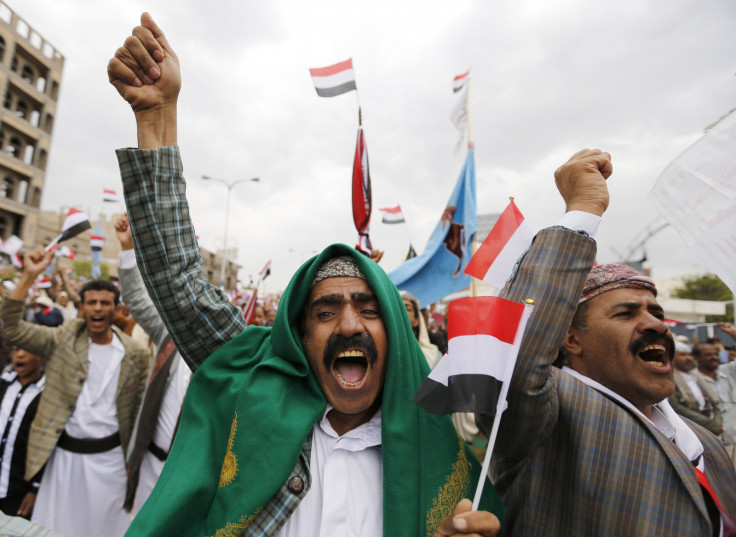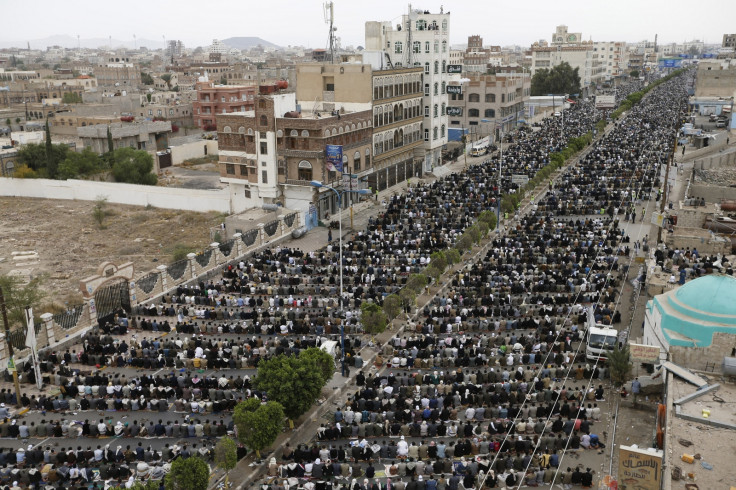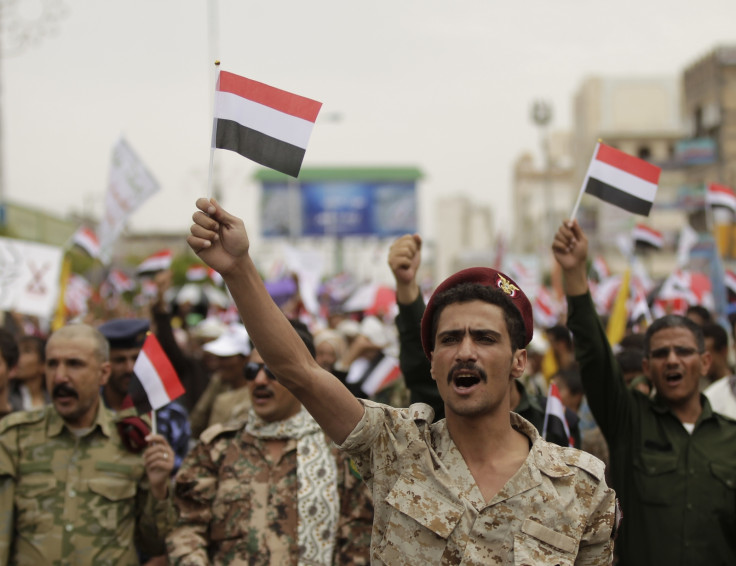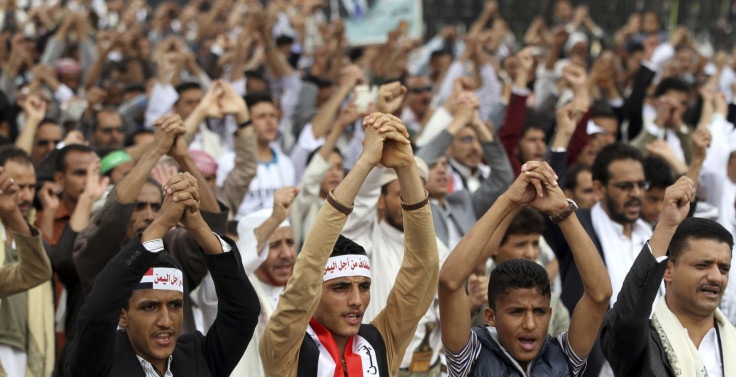Yemen President Hadi Faces Catch-22 Scenario In Sana'a

The deal between the International Monetary Fund and Yemen's government was a long time in the making. The figure was agreed upon, a $553m loan to be repaid over a three-year period, and a series of conditions were set.
Yemen's leadership was to remove fuel subsidies that had given a small boost to its impoverished population while simultaneously crippling the government's budget year after year.
The subsidies were lifted in July, triggering street protests that eventually swelled into massive daily demonstrations in the dusty capital Sana'a. The protesters, who by late August were totalling more than 10,000, called for the government to resign and for the president to reinstate the subsidy.
On 2 September, the IMF deal was signed off by the fund's board. The following day, with the political pressure mounting on President Abd Rabbu Mansour Hadi, the fuel subsidy was partially reinstated.
"It was unfortunate timing," said Danya Greenfield with a wry chuckle, "but I think they are still hopeful and expecting that overall subsidy reform will be undertaken by the government."
Greenfield is the acting director at the Atlantic Council's Hariri Centre and an expert on Yemen's economy.
"I think [Hadi] is committed to subsidy reform, if only because there is absolutely no alternative than to do so," she said. "It's by necessity that he is committed to because he needs the IMF support…and there's awareness among economic advisers and with Hadi himself that it's something that needs to be done."
Yemen's Dire Economy
Perched on the tip of the Arabian Gulf next to Oman, Yemen is the poorest country in the Middle East region. Its gross national income per capita in 2009 was $1,290, less than half that of the regional average, according to World Bank data.
Yet its government provides some of the highest energy subsidies when compared with its wealthier neighbours.

Energy subsidies swallowed 24% of the Yemeni government's budget in 2013, according to an IMF study. The biggest proportion of that money was spent on subsidising diesel fuel, while smaller amounts were spent on gasoline, mazut and diesel for electricity.
Yemen's ailing economy relies on oil and gas production. However, the past few years have been marked by a series of attacks on oil infrastructure. The economy lost $4.75bn from March 2011 to March 2013 as pipelines were frequently sabotaged, the country's Oil and Minerals Minister Ahmed Abdullah Daris said in January.
The communications ministry said acts of sabotage had cost the Public Telecommunications Company almost $7bn in the first half of 2013 alone.
The attacks have been carried out by perpetrators ranging from tribes with a grudge against the government or their neighbours to militants from al-Qaida in the Arabian Peninsula.
The Houthi Movement
The following days and weeks will be critical for Yemen's future and that of Hadi. The protesters, led by the opportunistic Houthi movement, have rejected the compromise that he proposed, leaving the two camps at tense standoff.
The Houthi movement originated in Yemen's northern province of Saada in the mid-1990s when it was associated with the Zaidi sect of Shia Islam. A decade later, the group armed itself and waged an insurgency against the government, calling for greater political rights and autonomy for their sect.
When former president Ali Abdullah Saleh was ousted in 2011, the Houthis entered the political transition process in the country. While the process legitimised the group, their leadership grew impatient with the speed of reform and felt they were being excluded yet again.

In their most recent incarnation, the Houthis have tapped into widespread anti-government sentiment throughout the country, bringing thousands of ordinary Yemenis on to the streets of the capital to protest against the lifting of subsidies.
The presence of thousands of armed men, camping out and marching in Sana'a was enough to push the president into reversing his decision to cut fuel subsidies.
Hadi's Credibility At Home and Abroad
While the IMF, the United States and other foreign donors will loathe to see costly subsidies being reinstated in Yemen, they will probably understand the political pressure the president is facing and give him some breathing room.

But with the Houthis showing no sign of demobilising, the tension could reach a critical point in the near future.
"If these steps do not pacify the Houthi movement and they continue to be aggressive and step up their protests then the big question will be: 'What does President Hadi do next?'" Greenfield told IBTimes UK.
"I think how he responds will be the test of his credibility, both in the eyes of his own population and in the eyes of the international community."
Hadi knows that he will need the backing of international bodies such as the IMF if Yemen is to emerge from the series of crises in which it is currently bogged down.
The recently approved IMF loan "isn't really enough to move Yemen beyond this crisis management point. What it will do is maintain basic macroeconomic stability, essentially budget support," said Greenfield.
"Whether it's enough to actually them to generate real economic growth and create new job opportunities remains to be seen. A lot of that will depend on the policies that they implement at the same time," she added.
That is the crux of the situation Hadi is facing. With domestic and international forces pulling him in opposing directions, it will require immense political skill to maintain credibility with both camps.
© Copyright IBTimes 2025. All rights reserved.






















